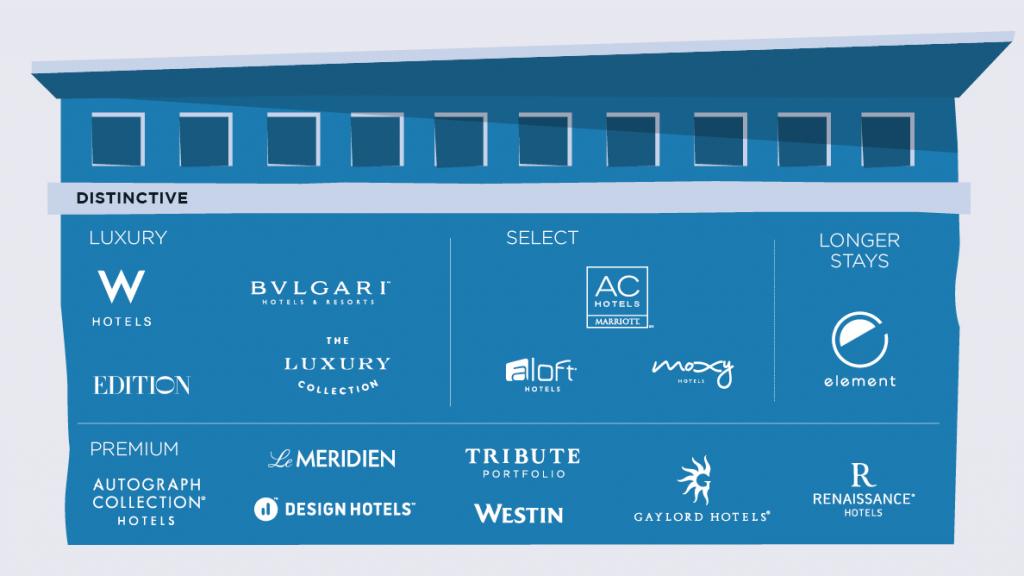Room to manoeuvre

With more accommodation options available than ever, and travellers’ wanting a say in the choice, what’s a travel manager to do?
Rachel Newns, Head of Accommodation Programme Management at FCM, sums up the challenge with a story: “I was talking to a client about considering a programme with Accor. I realised from the look on her face that ‘Accor’ meant nothing to her. But when I said ‘Novotel’, she was completely with me.”
The days when business travellers stayed at a Hilton and Hilton was the company with whom the corporate negotiated a corporate deal are history. Accor, Hilton and IHG all have a double-digit clutch of brands, while Marriott, since its merger with Starwood, tops the hotel companies’ brand league table with 29.
A growing market
The explosion in the availability of data in the past decade has enabled suppliers to understand better what experience makes which groups feel comfortable. The result has been a growth in brands as accommodation suppliers refine their offerings to target specific groups of travellers.
As Rachel says: “The brands are all obviously being brought out so that hotel companies can compete at a much more specialised level. Gone are the days when every location you travelled to was covered by a named hotel. It’s now a much more focused approach.” It’s no accident that the number of brands is growing at the same time that travellers themselves have much more access to content. With large third-party hotel content aggregators so present online and travellers’ having devices that give them 24/7 access at their fingertips, it’s not surprising that corporate travellers believe they’re experts in finding and booking stays.
How can the travel manager combine delivering the corporate objective of providing suitable and safe accommodation and the best experience possible at the best price possible for travelling staff with their increasing desire for autonomy over where they stay?

As the travellers’ approach matures, so too must that of the buyer and the travel management company.
Brands are able to compete for the actual travellers at a much more specialised level. The diagram shows how Marriott tried to explain its property network to staff after the Starwood merger, keeping it simple and assigning each to a box according to style (classic or distinctive) and price bracket (luxury, premium, select).
All six boxes are home for multiple brands, eg both Le Meridien and Autograph are “Distinctive, Premium”. But that’s a lot for a travel manager and the TMC acting on its behalf to contend with.

Getting the best price requires a nuanced approach. Rachel advises clients to focus on their high-volume destinations – those where there are offices or where big projects are on – and negotiate directly with individual properties in those locations.
“It’s about working with the individual hotel to find the best opportunity,” she says. As well as getting a good room rate, a direct negotiation with a property is an opportunity to negotiate on extras, such as breakfast and the kind of wi-fi (the upgraded version rather than just the standard offering). High volume accounts have been known to get airport transfers or transfers to the actual work site included.
But most transient travel programmes also require accommodation in destinations that aren’t visited very often. In such cases there’s not a lot for either the supplier or the buyer/traveller to bargain with but there is for the hotel company that owns or manages them.
Rachel has a tip for buyers: “In these locations, try to consolidate spend through a single supplier rather than negotiating with individual properties.”
Adding together room nights in different brands in different locations might very well be another 2,000 rooms in the UK for large hotel companies like Hilton or Marriott. A travel management company should be able to negotiate a discount off the BAR (best available rate) for properties booked by the corporate, or its travellers, with any brand within a hotel group.
“You should typically expect a negotiated rate to be 17-22% cheaper than BAR and include some benefits such as not paying for breakfast as well,” she says. Of course, this only works if the traveller chooses to book a brand within a group with which the corporate has such an agreement - and books it in a way that that booking can be identified as being from the company which owns the agreement. As Rachel says: “If a traveller is booking outside a managed platform, we can’t track it to get a discount.”
Travellers have become used to comparative shopping, having access to content and rates from different hotels, and want that experience replicated in their corporate booking experience.
"Hotels generally reward those who spend the most with them"
Rachel Newns, FCM Head of Accommodation Programme Management
For their part corporates clearly want compliance to obtain maximum benefit from those negotiated rates and valuable data. Some accomplish this by mandating preferred booking channels or prioritising named hotels but others fix rate caps within destinations, giving travellers autonomy so long as the rate does not exceed a given figure.
“If you can improve travellers’ loyalty to a chain, maybe by using their rewards scheme, you can improve stickiness of your hotel programme,” she advises. “Loyalty can see the traveller moving up grades of a loyalty programme to get room upgrades and other benefits which make the traveller more comfortable and save the company money.”
Direct business has a cheaper cost of sale than bookings through an intermediary so hotel companies do target travellers but corporates only meet corporate governance obligations and get control when bookings go through a central platform. The supplier does the fulfilment but TMCs such as FCM undertake a lot of other work involved in a booking on their behalf. “We’re managing clients with making confirmations, changes, requests and payments so we’re bringing value to the transaction,” says Rachel.
“Travel is getting more and more complicated, hotel rates are more complex and hotels are improving their revenue management tools constantly. Our job is to understand this market – a customer’s needs, culture, objectives, what the traveller demands when travelling for business, take the information and deliver a programme that will sit with the corporate requirements.”
Hotels like clients that have value. If an account manager has an understanding of a customer’s value, that can help sell the relationship and reap benefits for customers when they begin working with a new property. But that new property is likely to be part of an old hotel company.


